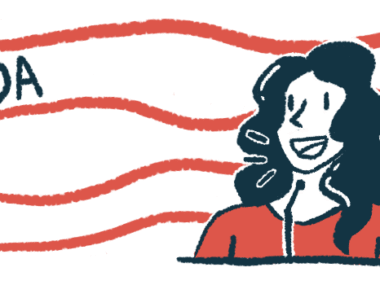Thinking About the Line Between Nostalgia and Glamorization
Written by |

This past week, I grabbed lunch with an old friend, Kevin Schaefer. He writes a great column for SMA News Today. Our conversations over lunch usually revolve around nerdy topics such as the latest trailer for “Batman: Hush,” but that day, we also ended up talking about disability and how it has affected the way we define ourselves.
It’s a topic I had been thinking about recently, because I’ve been considering the degree to which Charcot-Marie-Tooth disease (CMT) has become part of my identity — and whether or not that’s even appropriate to say.
On one hand, dealing with CMT and its symptoms has led to experiences that have shaped me for the better or worse. Some of those experiences have also helped me learn about myself and who I am as a person. On the other hand, CMT is a horrible disease, and the disease itself should not be romanticized.
I can’t help but feel nostalgic when I think back to my days of playing with my ankle-foot orthoses on my elementary school playground. I’m proud of how I found ways to push my limits in my high school marching band, despite some physical limitations. And although I don’t love how my fear of letting others down drew me away from team sports, I do like how some of that fear led to my appreciation of individual sports, such as badminton. And recently, my disease has led me to pursue relationships within the CMT community.
It’s not the disease itself that I relate to — if there were a cure, I’d jump at the opportunity to be rid of my CMT symptoms. However, I think I can allow myself to appreciate what I’ve taken from my life experiences. My identity doesn’t come from CMT itself. I’m not even saying I’m objectively better, more moral, or more thoughtful because of it. But I have changed because of it.
And that’s perhaps the beginning of a conclusion I’ve come to from my conversation with Kevin.
We deal. We manage. We meet the challenges our disabilities throw at us. That doesn’t make our disabilities glamorous, though. He and I both spurn media stories and bad narratives that seem to fetishize disabilities, whether they’re in the form of inspiration porn or lazy tropes. At the same time, we can appreciate the experiences that have been affected by our disabilities.
I’m not going to “thank” my CMT. I’m not going to be glad that I have it. When I say it is part of my identity, I’m not referring to the disease itself; I’m identifying with the community and recognizing the impact CMT has had on my life. And that comes with some mixed, and sometimes confusing, emotions.
***
Note: Charcot-Marie-Tooth News is strictly a news and information website about the disease. It does not provide medical advice, diagnosis, or treatment. This content is not intended to be a substitute for professional medical advice, diagnosis, or treatment. Always seek the advice of your physician or other qualified health provider with any questions you may have regarding a medical condition. Never disregard professional medical advice or delay in seeking it because of something you have read on this website. The opinions expressed in this column are not those of Charcot-Marie-Tooth News or its parent company, Bionews Services, and are intended to spark discussion about issues pertaining to Charcot-Marie-Tooth.






Leave a comment
Fill in the required fields to post. Your email address will not be published.